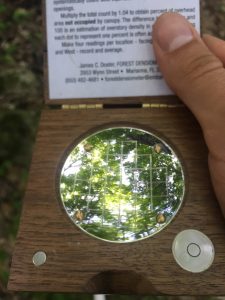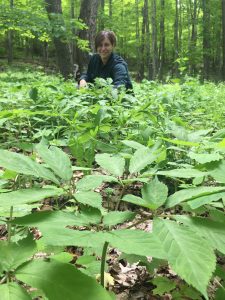Wild and wild appearing ginseng is up to 100 times more valuable than alternatives grown under shade cloths. GNE19-221 investigated strategies for wild-simulated forest planting for ginseng, where forest farmers introduce ginseng to an area and allow it to grow with little intervention.
The project, conducted by graduate student Karam Sheban with faculty advisor Marlyse Duguid through Yale School of Forestry and Environmental Studies, yielded recommendations for use of indicator species to identify planting sites, tools such as a densiometer and a pH meter, and site modifications like thinning and lime application for shaded and acidic sites.
The driving goal of the graduate student research program is to invest in a new generation of scientists.
Northeast SARE Graduate Student Research grantees explore new strategies in farming and food systems and generate insights farmers across the region can use to help their businesses and their communities thrive.
“The driving goal of the graduate student research program is to invest in a new generation of scientists,” Northeast SARE Grant Coordinator Kali McPeters said. “The program introduces students to grant writing and is often times many grantees first experience applying for and managing a grant.”

In this instance, a 2019 Graduate Student Research Grant explored strategies for wild-simulated forest farming. Now, a Research and Education Grant led by Sheban and Duguid will expand on those findings to establish a community of practicing forest farmers in the Northeast through the coordination of partnering universities, nonprofits, and government agencies.
“As a grant coordinator, it is really exciting to see awardees take the knowledge and confidence they gained from their experience with the graduate student program and continue on to apply for and be successful with SARE’s other funding tracks as they advance in their careers,” McPeters said.
Learn More About Graduate Student Research Grants
